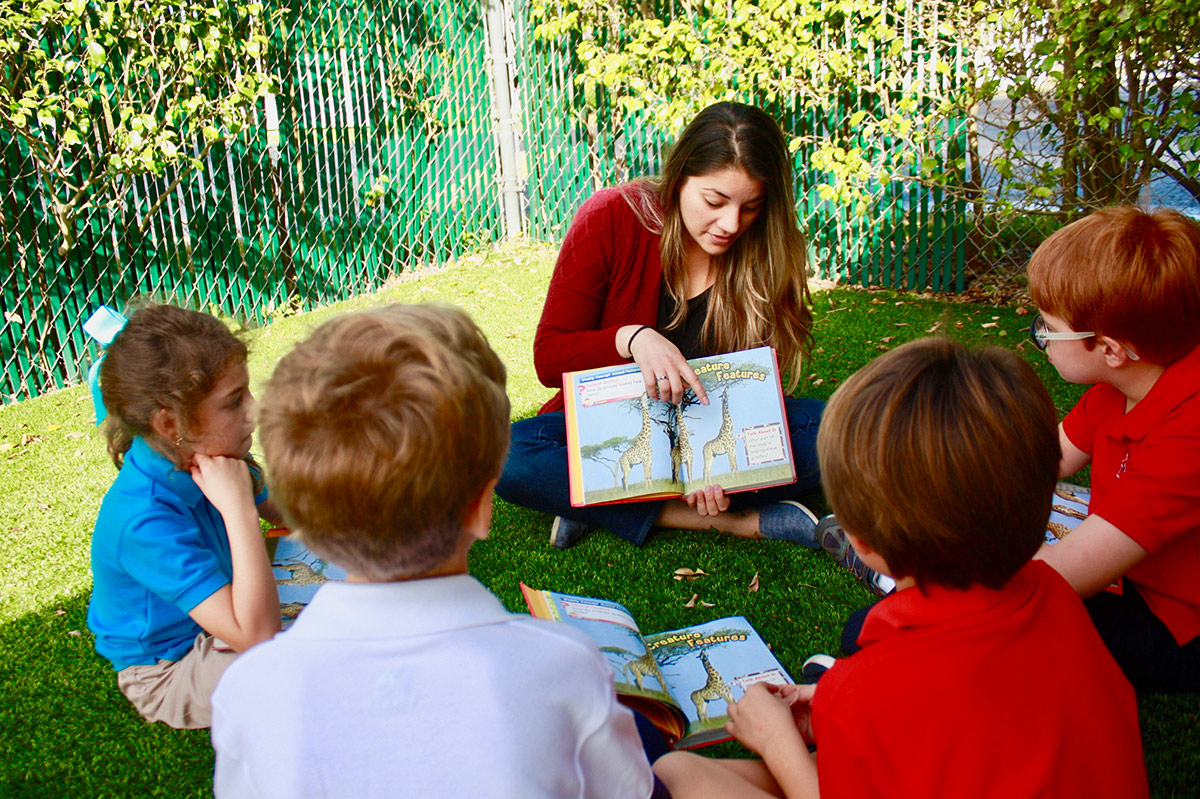Choosing when to enroll your child in preschool, if at all, is a big decision. There are many options for parents and children, and finding the right one for your child is important. Attending preschool has been shown to help prepare students for kindergarten and give them the building blocks they need to succeed throughout their school career. When you are able to choose a preschool in Miami like The Roig Academy, your child receives the added benefit of receiving bilingual instruction, taking advantage of these early years when languages are more easily acquired.
Most preschools will begin accepting students around the age of two and students can complete multiple years of preschool until they are ready for kindergarten around age five. This means one parent may have their child enrolled in two to three years of preschool, while another might opt for only one year of preschool. Others, still, have their child start a traditional school schedule in kindergarten as preschool is not a requirement. With so many options for when to start your child in preschool, how do you know when is the right time? Is earlier better? Or is it best to wait until they are four-years-old? In today’s blog, we’ll discuss some key indicators that might show that your child is ready to start learning at our IB preschool. Keep reading to learn more, or feel free to inquire about our Miami preschool admissions if you have specific questions.
Your Child May Be Ready For Preschool If…
They Can Do Things For Themselves
While toddlers are still learning their basic motor skills, they will have an easier time at preschool if they can do certain tasks by themselves. This includes using the toilet, washing their hands, putting on their jacket, taking a nap, and picking up toys. Some preschools require students to be potty trained before they can enroll, so make sure to ask potential preschools about any specific requirements they have.
They Can Handle Time Without Mom And Dad
Many children develop a dependence on the presence of Mom or Dad, and experience distress when they are not within eyesight of them. If your child has never spent a day away from you, you might find that preschool is a very difficult transition. Before committing to a year of preschool education, consider a less committal alternative such as a drop-in daycare, babysitter, or a weekend at a relative’s house to test the waters and get a feel for how your child fares when Mom and Dad are gone.
However, if your child has not spent much time away from you and struggles to adjust to preschool, don’t worry. Many children will only experience separation anxiety for a short period of time while they adjust to their new schedule.
They Can Follow Directions
Children experience massive cognitive growth during the first few years of their lives, and one skill that they develop early is the ability to follow simple directions. This includes tasks like putting toys in the toybox, lining up with other students, or following along with an arts and crafts demonstration.
They Have The Stamina
Being a toddler is hard work! When you include the addition of spending the day with structured activities, it can be physically and mentally taxing on a young child. While our preschool has dedicated nap time, if your child is used to taking two or three naps a day, they might not have the mental stamina needed for a full day of preschool. If your child becomes overtired by the end of the day, they won’t be able to reap the full benefits that preschool has to offer.
You can begin preparing your child for half- or full-day preschool by having them just take one nap per day and ensuring their days have plenty of activities such as coloring, playing with playdough, kicking a soccer ball, or playing hopscotch.
They Can Pay Attention
While we don’t expect preschoolers to sit quietly at a desk all day, many preschoolers need to be able to pay attention for short periods of time. This can include listening to a book during storytime, working on a puzzle, or playing a game. While distraction is inevitable, those who have very short attention spans may have trouble in preschool. However, attention can be strengthened through various activities and games at home or in the classroom.
They Have The Right Personality Traits
Of course, all children are vastly different and there are no “right” or “wrong” personality traits. However, certain characteristics might indicate that your little one will love preschool and thrive in a classroom environment. This includes being curious and explorative, loving to learn new things, and enjoying making new friends. If your child is not exhibiting these traits, don’t worry. They can certainly still find success in preschool and beyond and will likely grow cognitively with more practice.
Inquire About Our Preschool Program In Miami Today
Do you think your little one is ready for our bilingual preschool in Miami? Do you want to meet with our professionals to determine if your child would be a good fit for The Roig Academy? We’d love to hear from you! We love meeting with potential students and parents so we can get a better idea of your child’s strengths and weaknesses, and you can get a better feel for our IB bilingual preschool.
Reach out to our admissions team today to learn more about enrolling your child at our private preschool in Miami!
Let’s get to know each other!
You can also contact admissions at 305-235-1313.

